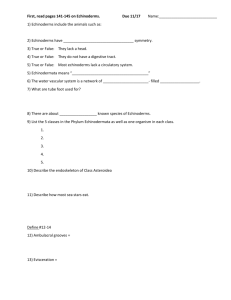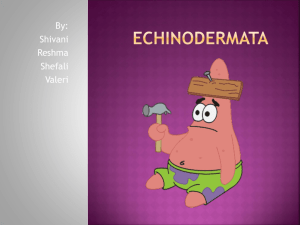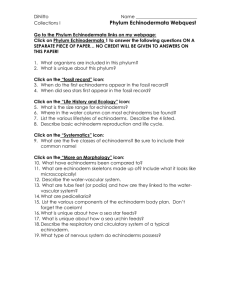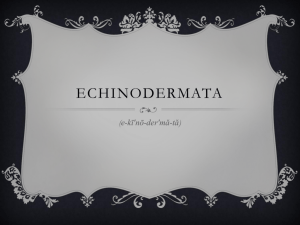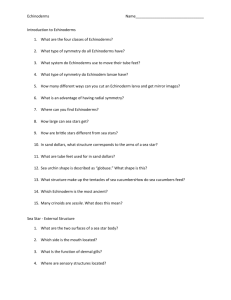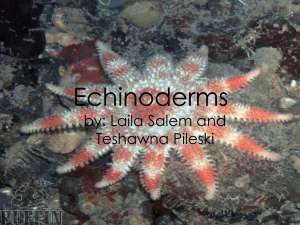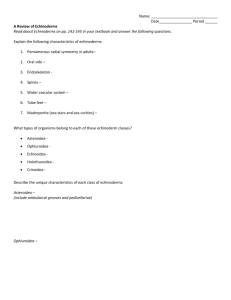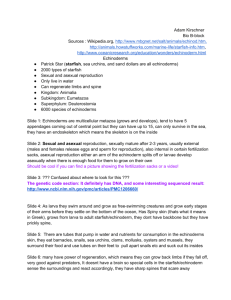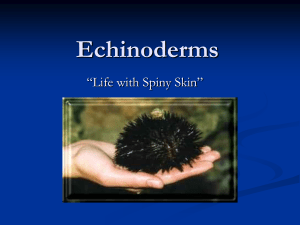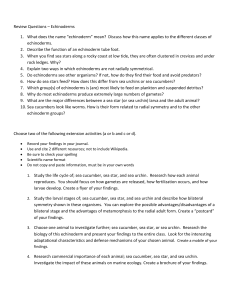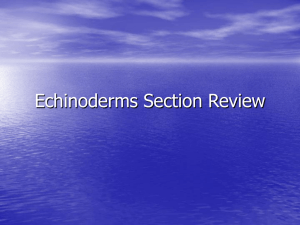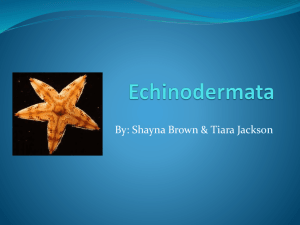Phylum Echinodermata Web Quest
advertisement
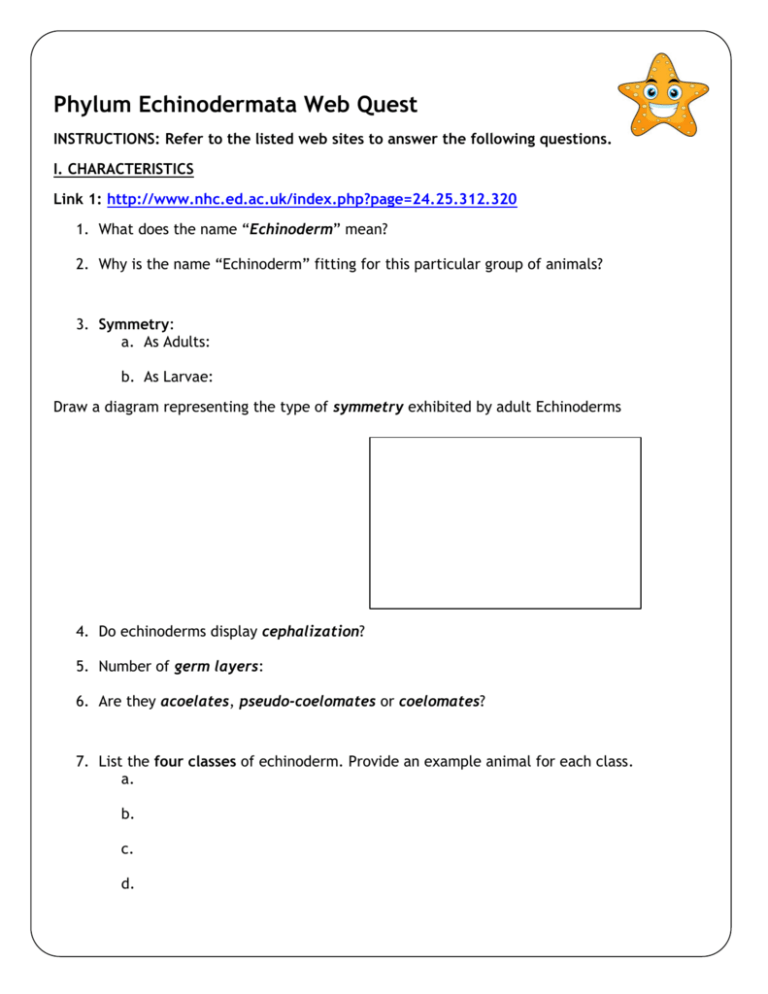
Phylum Echinodermata Web Quest INSTRUCTIONS: Refer to the listed web sites to answer the following questions. I. CHARACTERISTICS Link 1: http://www.nhc.ed.ac.uk/index.php?page=24.25.312.320 1. What does the name “Echinoderm” mean? 2. Why is the name “Echinoderm” fitting for this particular group of animals? 3. Symmetry: a. As Adults: b. As Larvae: Draw a diagram representing the type of symmetry exhibited by adult Echinoderms 4. Do echinoderms display cephalization? 5. Number of germ layers: 6. Are they acoelates, pseudo-coelomates or coelomates? 7. List the four classes of echinoderm. Provide an example animal for each class. a. b. c. d. Click on the link to CLASS STELLEROIDEA II. CLASS STELLEROIDEA 8. What types of animals are found in this class? 9. Describe the body layout of Stelleroids and draw an example diagram representing a Stelleroid. 10. What do Stelleroids generally feed on? 11. What are two subclasses of Stelleroidea and what animals are found in each subclass? a. b. Click on the link to CLASS ECHINOIDEA III. CLASS ECHINOIDEA 12. Describe the body layout of ECHINOIDEA 13. What animals are found in this class? 14. How do Sea urchins feed on algae found on surfaces of rocks? Click on the link to CLASS HOLOTHUROIDEA IV. CLASS HOLOTHUROIDEA 15. What animals are found in this class? 16. In comparisons to other classes of Echinodermata, what do Holothurians lack? 17. Describe feeding in Holothurians. Click on the link to CLASS CRINOIDEA V. CLASS CRINOIDEA 18. What animals are found in this class? 19. How are crinoids different from other classes of Echinodermata in terms of their body layout? 20. Describe feeding in Crinoids. Link 2: http://www.mesa.edu.au/echinoderms/ VI. BODY SYSTEMS 21. Digestive system: a. Describe the digestive system in Echinoderms: b. Where are the mouth and the anus located? c. How can Echinoderms feed on prey that is larger than the size of its mouth? 22. Nervous system: a. Do Echinoderms have a brain? b. What types of receptors do echinoderms have? 23. Circulatory system: a. What are the functions of the fluid-filled canals in Echinoderms? b. What do these networks contain? i. ii. 24. Respiratory system: a. How do Echinoderms carry out its respiratory functions? 25. Reproductive system a. Echinoderms are ____________________, and have separate male and female individuals. b. What type of fertilization occurs? c. Describe asexual reproduction in echinoderms. 26. Excretory system: a. How do Echinoderms carry out its excretory functions? Link 3: http://www.mbgnet.net/salt/oceans/ 27. How do sea stars move? a. What are “tube feet” and how do they facilitate in locomotion of echinoderms?
